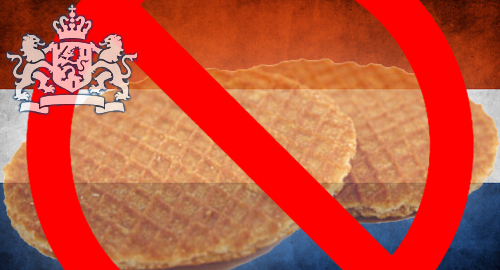 The Netherlands’ gaming regulator is vowing to take an even tougher stand against unauthorized online gambling operators based on its professed desire to protect Dutch youth from harm.
The Netherlands’ gaming regulator is vowing to take an even tougher stand against unauthorized online gambling operators based on its professed desire to protect Dutch youth from harm.
On Saturday, the Kansspelautoriteit (KSA) regulatory body announced “a new step in combating remote gambling,” with KSA vice-chairman HW Kesler saying it was “unacceptable” that underage Dutch citizens were allegedly finding welcome mats outside the domains of internationally licensed online gambling sites.
Not to put the cart before the horse, but the KSA announced its plans to unleash its can of whoop-ass against minor-friendly online gambling sites before actually determining the scope of the problem. In fact, the KSA says it is still planning to launch an investigation into allegations of minors gambling online, and the results of this study may lead to even more whoop-assery.
The KSA already considers a gambling site to be out of bounds if it offers services in the Dutch language, advertises its services on Dutch-language/Dutch-facing media or employs the use of an .nl domain. Starting June 1, the KSA is dramatically broadening its definition of what constitutes a rogue website.
These new hallmarks of criminality include promotional websites that use a .nl domain to redirect users to a .com gambling domain, as well as operators who fail to employ geo-blocking technology that prevents Dutch punters from gaining access. Processing payments via means that are “wholly or largely used” by Dutch citizens is similarly suspect.
Also, operators shouldn’t use a domain name that incorporates gaming-related names that the KSA believes Dutch punters would find familiar, such as ‘lump bingo,’ ‘fun poker’ or ‘red-white-blue-casinos’. Websites also shouldn’t use graphics of things like clogs or windmills, or use pictures of “syrup waffles” to indicate bonus offers.
The KSA cautions that this list of wicked windmills and waffles isn’t definitive and that it reserves the right to find lots of other things incriminating.
Dutch online industry trade group Speel Verantwoord issued a statement expressing its disappointment that the KSA hadn’t bothered consulting with stakeholders before issuing this fresh declaration of war. At the very least, the group wished the KSA would have made some distinction between “cowboys” and legitimate European-regulated gambling providers.
The KSA is already one of Europe’s more active combatants in the fight against international online operators, routinely doling out six-figure fines against transgressors. Last December, the KSA streamlined its enforcement regime to eliminate the need to issue warning letters before issuing such fines.
That said, issuing fines is one thing. Collecting those fines is an entirely different matter, as the KSA’s own data shows. Since 2013, the KSA has issued fines totaling €1.69m, while it has collected only €530k, and it has collected exactly niets since 2015.
Meanwhile, the upper house of the Netherlands legislature is still considering the country’s oft-delayed Remote Gaming Bill, which was passed by the lower house last year.